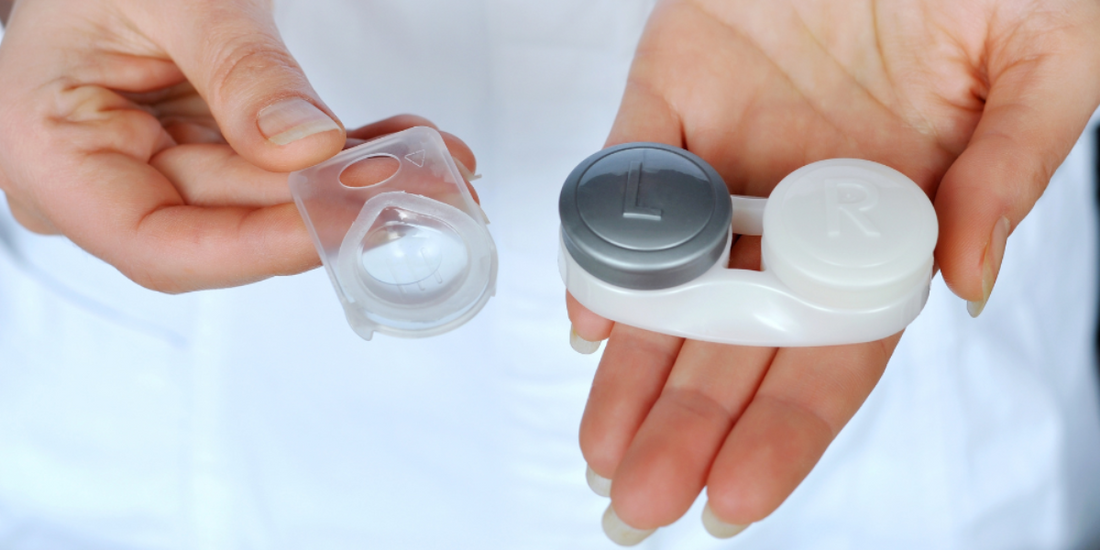
How to Choose the Best Contact Lenses for Your Eyes
Share
Choosing the right contact lenses is crucial for clear vision, comfort, and maintaining healthy eyes. With so many options available, finding the perfect lenses might feel overwhelming, but don’t worry—we’ve got you covered. This guide will walk you through the key factors to consider when selecting the best contact lenses for your needs.
1. Understand Your Vision Needs
The first step in choosing contact lenses is to understand your vision correction requirements. Your optometrist will determine the type of lenses you need based on your prescription:
- Myopia (Nearsightedness): Lenses for clear distance vision.
- Hyperopia (Farsightedness): Lenses for better near vision.
- Astigmatism: Toric lenses to correct uneven curvature of the cornea.
- Presbyopia: Multifocal lenses for age-related difficulty in focusing on close objects.
2. Consider Your Lifestyle
Different lifestyles call for different types of contact lenses:
- Daily Disposables: Ideal for busy individuals who prefer low maintenance. These lenses are worn once and discarded.
- Monthly or Bi-Weekly Lenses: Cost-effective options that require daily cleaning and storage.
- Extended Wear Lenses: Designed for continuous wear, including overnight use, but they may not suit everyone’s eyes.
3. Choose Between Soft and Rigid Lenses
Contact lenses come in two main types:
- Soft Lenses: Made from flexible materials that are comfortable and easy to adapt to. Perfect for daily and occasional wear.
- Rigid Gas Permeable (RGP) Lenses: Provide sharper vision and are more durable, but they may take longer to get used to. These are often recommended for complex prescriptions.
4. Explore Specialty Lenses
If you have unique needs or preferences, specialty lenses might be the best fit:
- Coloured Lenses: Add a fun pop of colour to your look, with or without vision correction.
- Silicone Hydrogel Lenses: Allow more oxygen to reach your eyes, promoting better eye health.
- Hybrid Lenses: Combine the comfort of soft lenses with the clarity of RGP lenses.
- Scleral Lenses: Designed for people with irregular corneas or severe dry eye conditions.
5. Factor in Eye Health and Comfort
Eye health and comfort should always be your top priorities. Consult your optometrist if you experience:
- Dry eyes
- Sensitivity to lens materials
- Allergies to lens solutions
You may need lenses specifically designed for sensitive eyes or higher oxygen permeability.
6. Stick to Your Budget
Contact lenses are available at various price points, depending on the type and brand. Daily disposables are often more expensive in the long run compared to monthly lenses, but they eliminate the cost of cleaning solutions. Always balance cost with your comfort and convenience needs.
7. Follow Your Optometrist’s Recommendation
An optometrist is your best guide when it comes to selecting the right lenses. They’ll assess your eye health, lifestyle, and preferences to recommend lenses that suit you perfectly.
Quick Tips for Beginners
- Always purchase contact lenses from a trusted retailer to ensure they’re authentic and safe.
- Never switch lens brands or types without consulting your optometrist.
- Stay consistent with proper lens care to avoid eye infections.
Final Thoughts
Choosing the best contact lenses is a personalised decision that depends on your vision needs, lifestyle, and budget. At Contact Lens R US, we stock a wide range of lenses to suit every requirement. If you’re unsure which lenses are right for you, our team is always here to help.
